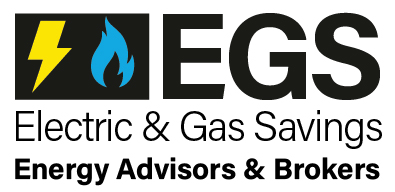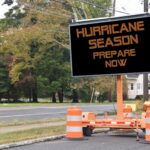Unfortunately, the 2020 hurricane season is here. Natural disasters and storms do not go on pause, even for a worldwide pandemic. The COVID-19 pandemic, may add stress to your hurricane preparation. However, this page is here to provide advice and tips on how to prepare safely, evacuate, and shelter for severe storms while still staying safe from the COVID-19 virus. There are some pointers listed below that will help you and your family remain safe during this complicated hurricane season.
PREPARING FOR HURRICANE SEASON
- Firstly, it will help to start out with the understanding that planning may be different this year than in previous years due to the need to protect yourself and others from spreading the COVID-19 virus.
- Allow yourself more time than usual to gather emergency food, water, and medical supplies (Use the list below for the basic hurricane emergency supply kit). Don’t hesitate to use home delivery, it is the safest option for buying your disaster supplies. If home delivery is not an option for you then of course in person shopping can get the job done. While in-person shopping, “take steps to protect your and others’ health when running essential errands”.
- When filling prescriptions you can protect yourself and others by limiting in-person visits to the pharmacy. Instead try signing up for mail order delivery or call your prescription in ahead of time and plan to use the drive-through window.
- Stay on top of the news and keep checking on local guidelines and guidance regarding updated plans for evacuations and shelters, including pet shelters.
- Having a “go kit” with any personal items that you cannot live without during an emergency is wise in case the need to evacuate does arise. You can include items that can help protect yourself and others from COVID-19, for example, hand sanitizer, or soap if hand sanitizer is not available. Include two cloth face masks for each person in your family (children under the age of 2 should not use face covers). In addition, face masks are not recommended to be used by those who are having trouble breathing, who are unconscious, or who cannot remove the mask without assistance.
- When you check on friends and neighbors always follow social distancing recommendations. These recommendations suggest you stay at least 6 feet or 2 arms’ length distance away from others. Follow any “other CDC recommendations” to protect yourself and others as well.
- If you find that you are having to go to a disaster shelter, then again follow CDC recommendations for staying safe in a public disaster shelter during the COVID-19 pandemic.
- Gather information and knowledge to set yourself up for a safe hurricane season. Follow guidelines and listen to professional advice on how to remain safe.
STAYING SAFE AFTER A HURRICANE
- In addition to following guidance for staying safe and healthy after a hurricane, note that:
- Even after a hurricane when returning home and during clean-up it is important not to forget to continue using face coverings and continue to wash your hands. Keep on adhering to preventive actions even after a hurricane has passed.
- Keep in mind that things may take longer than usual to resume. For example, restoring water and power may take longer than in the past. If you use a generator follow these “steps to prevent carbon monoxide poisoning”.
- If you are ill (feeling symptoms of COVID-19) or injured, contact your medical provider immediately for recommendations on how to proceed with treatment. In the meantime, keep your wounds clean in order to prevent further damage or infection. Keep in mind, accessing medical care could be more difficult than usual during this pandemic.
- Worrying about disasters and dealing with disasters can cause immense stress and emotional turmoil, especially during the COVID-19 pandemic. However, remember that it is natural to feel anxious, worry and grief. Finding a way to cope with your feelings and getting help when you need it will help yourself, family and even your community to recover.
- Anyone with a preexisting mental health condition must continue with treatment and monitor new or worsening symptoms. More information on this topic can be found here at the Substance Abuse and Mental Health Services Administration page.
STAYING INFORMED
- “Register for AlertHouston, the city’s official emergency alert system, to receive real-time weather alerts and post-storm recovery information”.
- If you want more information on how to prepare for this year’s hurricane season go here.
- Visit http://www.houstonemergency.org/covid19 for more information about the city’s COVID-19 response.
- Recovery information is available at http://www.houstonrecovers.org/.
BASIC EMERGENCY SUPPLY KIT
The following list is for a basic emergency supply kit that can be supplied even on a budget, it includes the following items:
- Water: Recommended to have one gallon of water per person per day for at least three days. This water will be used for drinking and for sanitation.
- Food: You want to pack or have a three-day supply of non-perishable food items.
- Radio: Getting a battery-powered or hand crank radio and a NOAA Weather Radio with tone alert and extra batteries for both.
- Flashlights and extra batteries.
- A First aid kit.
- Any Medications prescribed or over the counter you may need.
- A loud whistle you can use to signal for help.
- Dust mask to help filter contaminated air, plastic sheeting and duct tape to prepare for a shelter-in-place situation.
- Moist towelettes, garbage bags and plastic ties for personal sanitation.
- Wrench or pliers to so that you may turn off your utilities.
- Manual can opener for food
- Local maps
- Cell phone with chargers, inverter or solar charger
- Pet food, leashes, crates, medication
Source: The Houston Office of Emergency Management







